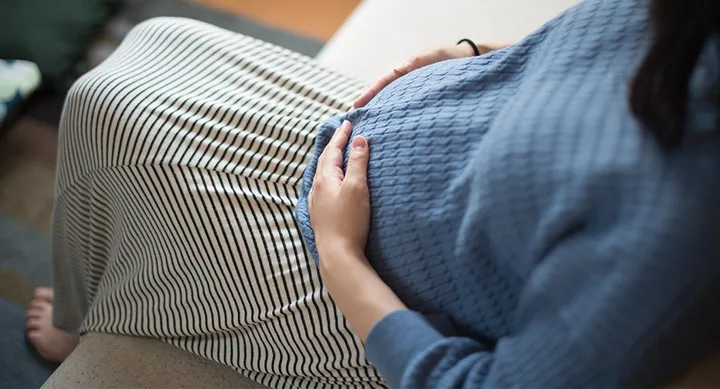Most women have nine months to come to terms with the idea of having a baby. The women featured in a recent episode of SBS’s The Feed had just a few hours.
Approximately 1 in 500 pregnancies are ‘unknown’ or ‘concealed’ pregnancies, according to Dr Euan Wallace, who runs the obstetrics department at Monash university. It occurs often in young women with strong abdominal muscles, who put on only the weight of the baby they are carrying. Some even retain their periods for the duration of the pregnancy.
Two such women are Lara Vrkic and Megan Bradford, both of whom featured heavily in SBS’ The Feed. They were both ambitious, popular young women when they discovered that they were pregnant… while in the middle of their labour.
Vrkic was still living at home and had just started a new job when she woke up one morning feeling sick. She rushed through her house to the bathroom, and “as soon as I got [there] he just came out. I yelled out to my dad because he’s really good in those situations. Dad wrapped [him] up in a towel… and my brother called the ambulance.”
“I had never held a baby,” Vrkic said. “The ambulance people were like here, hold your child, and I was like, I don’t know how to. You’re going to have to tell me how to hold a newborn.”
Bradford’s experience, as documented in The Feed, was similar. The night before she gave birth she recalled having severe cramps that woke her up intermittently. The pain became so severe she went to the hospital, where triage workers placed an ultrasound machine on her stomach and recorded a heartbeat.
“At that point I went, ‘oh my god’,” Bradford recalled. “They said ‘you’re in labour, and you’re going to have a baby today.’ I vomited a little bit and we [my boyfriend Matthew and I] both cried a little bit.”
As experts explain in the documentary, the experience of having a surprise labour is an incredibly confronting one. Rather than having the term of a pregnancy to slowly come to terms with the idea of giving birth and becoming a mother, for these women it is literally a fait accompli.
“The major risk for women whose pregnancy is unknown is that they don’t access pregnancy care,” Dr Wallace said in the documentary, referring to the prenatal medical assistance that women usually receive: regular checkups, advice and counselling, information about what to do, and more importantly – what not to do while pregnant.
Both women drunk and ate what they wanted throughout their pregnancy (Bradford even had her 21st birthday party when she was seven months pregnant, and she also smoked). Both women expressed concerns about whether their sons might display any learning difficulties or developmental delays later on in life.
But the other significant concern is a psychological one.
“They genuinely don’t know [they are pregnant],” Dr Wallace said. “As you can imagine it is such a confronting experience to be normal, healthy young women one day and a mother one hour later.”










